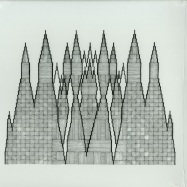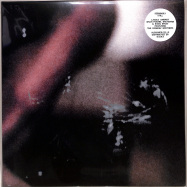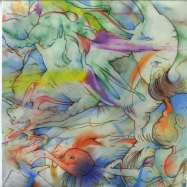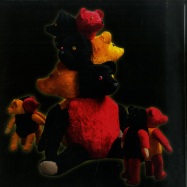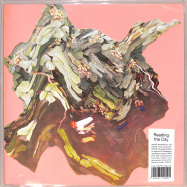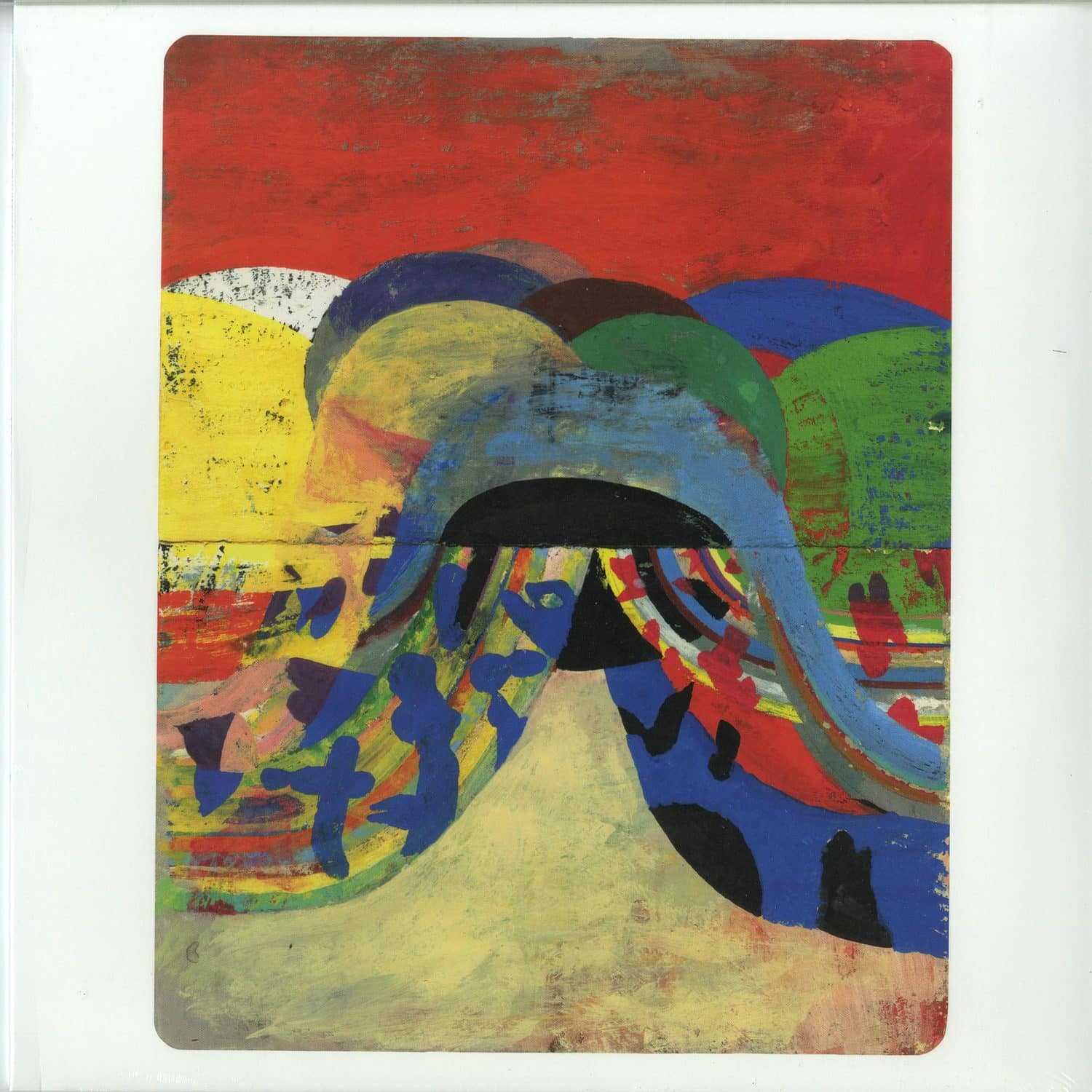
On The Spectrum Does, New York Avant-rock Musicians Che Chen And Robbie Lee Create Three Earthy And Slow Moving Pieces, Informed As Much By Various Global Folk Traditions As They Are By 20th Century Composition And Improvisation.their anything Goes Approach To Improvising Leads To A Sonic Document That Sounds Raw, Intense And Freshly Exciting. A Wild And Shambolic Brew Sounding Like Nothing Else.
Sales Information:
ROBBIE LEE flute, tarogato, melodica, great bass recorder, electronics, percussio
CHE CHEN violin, harmonium, bass recorder, tape machine, electronics, percussion
RECORDED & MIXED BY Robbie Lee
COVER PAINTING BY Che Chen
TYPOGRAPHY BY Jeroen Wille
MASTERED BY Jack Allett
LIMITED EDITION OF 300 copies
On The Spectrum Does, New York avant-rock musicians Che Chen and Robbie Lee create three earthy and slow moving pieces, informed as much by various global folk traditions as they are by 20th century composition and improvisation. Their anything goes approach to improvising leads to a sonic document that sounds raw, intense and freshly exciting. A wild and shambolic brew sounding like nothing else.
BIOGRAPHY
Visual artist and musician Che Chen lives and works in New York. Former music projects include True Primes, duos with Tetuzi Akiyama, Chie Mukai and Jozef van Wissems Heresy Of The Free Spirit (with Robbie Lee). Currently he plays with percussionist Rick Brown as 75 Dollar Bill.
Robbie Lee is a musician, composer and producer also living in NYC. He has played with an eclectic group of improvisers and songwriters like Neil Hagerty & The Howling Hex, Baby Dee, Cass McCombs, Mary Halvorson and Talibam! He is also in Creature Automatic, Seaven Teares, and a new trio with Brian Chase and James Ilgenfritz. He runs the Telegraph Harp label with Elisha Wiesner.
Che Chen is musician and visual artist currently best known for his work with percussionist Rick Brown as 75 Dollar Bill. In the mid 2000s he formed this duo with composer and producer Robbie Lee, who at the time played with people like Baby Dee and Neil Hagerty. Their most concentrated period of activity is bookended by a first LP they self-released in 2008 called Begin & Continue! and this record, The Spectrum Does, which contains music recorded several years later.
On The Spectrum Does, both tackle a range of un-conven-tional instruments like bass recorders, Renaissance clarinet, glissando flute, tarogato, electrified violin, ultraslow recorders and custom modified tape machines.
While their first LP documented their earliest, mostly acoustic improvisations, The Spectrum Does captures Che and Robbie after 5 or so years of meeting two or three times week and multiple tours around the country (a couple of times as a part of Jozef van Wissems band Heresy Of The Free Spirit). By now what was pulsing out of their little overdriven tube amps was even more electrified and warped. Sounds of unknown origin seem to bubble up to the surface, met by completely unique approaches to wind and string instruments.
Much boundary pushing improvised music gets described as outer limits but on The Spectrum Does, it seems much more right to say they explore the inner limits. It is deep listening music, but not minimalist; complex but not virtuosic. Dissonances intermingle with folk harmonies and rhythms. As with all of the music this duo made together, theres a sort of shambolic-shamanic sensibility to it, but without a motive or explicit purpose. To be filed close to your Tony Conrad, Henry Flynt, Pelt, The Dead C records.
SOME WORDS FROM THE DUO ON THE SPECTRUM DOES
CHE CHEN: The long improvisation that starts on the first side and spills onto the next was recorded live at a gig opening for Loren Connors and Suzanne Langilles incredible band, Haunted House, at Issue Project Room in the Spring of 2011 (back when they were in the Can Factory space). I remembering it being a strong set, crashing out of the gate with Robbies tangled tarogato lines and my splintered violin stabs before careening onward with the kind of harnessed, intensity that one always hopes will appear when improvising The recordings that make up the bulk of the second side were made in a dark and airless practice space in the back of the Glasslands, a now defunct DIY space in South Williamsburg. The sound is more insular, turned inward instead of exploding out like the live set, and is pretty representative of how single minded the explorations that made up our weekly sessions could be.
ROBBIE LEE: These pieces have the feeling of field recording, capturing rehearsals in their best moments, so a sense of freedom is everywhere, the kind of freedom that can collapse at any moment. But they are also the result of years of a developing a very close language, specific to this duo alone. We originally began playing together as bass clarinet duos, and for a while as bass recorder duos. So even when we are playing radically different instruments, theres still this very real feeling that neither of us know whos generating which sound, in this floating cloud of vibration. This is partially because of Ches use of tape machines, custom modified to loop and play at different speeds, to reiterate and regurgitate my sounds, and then his own as well.
CHE CHEN: Not long after the Issue show, things fell apart, as they often do, and I went off and spent a couple of years collaborating with people in the Japanese underground before woodshedding hard on the electric guitar and starting 75 Dollar Bill. Meanwhile, Robbie made another record of his idiosyncratic songs (this time as Creature Automatic) and seemed to be focusing his considerable knowledge and technique on getting really good at one of the more unassuming instruments in his toolbox, the open-holed flute. I didnt listen to Spectrum during the 5 years it sat on the shelf, but hearing it now, I love the openness and spirit of adventure. All the angles we were working on seem well-represented. I hear the synthesis of all the hours we spent playing together, and of all the hours we spent listening to music, another important part of those times. I hear our commitment to creating a shared language, a framework for making music spontaneously in the moment. But most of all I hear two people finding their way, pushing and supporting each other in sound.
GTIN:
5414165083139
code:
caw-fg
VÖ:
24.10.2017
wieder da:
14.02.2024
Customers who bought this item also bought :
more releases on label
* All prices are including 0% VAT excl. shipping costs.


